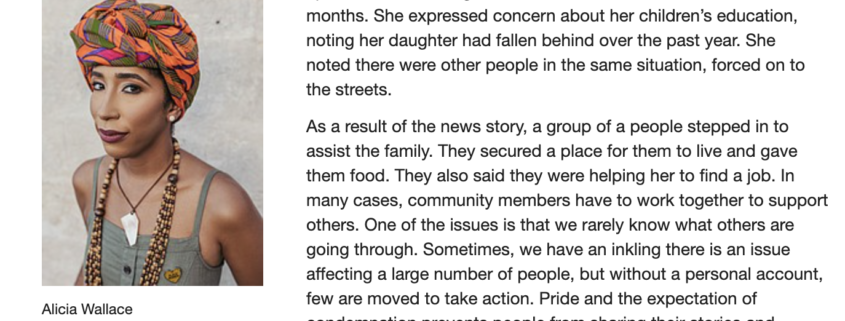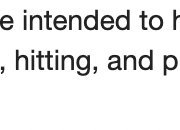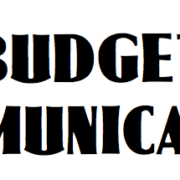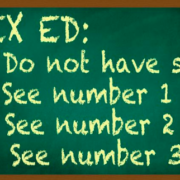Last week, it was reported a woman was sleeping in a car with her children, including an infant. She was asked to leave her previous apartment after being allowed to live there rent-free for several months. She expressed concern about her children’s education, noting her daughter had fallen behind over the past year. She noted there were other people in the same situation, forced on to the streets.
As a result of the news story, a group of a people stepped in to assist the family. They secured a place for them to live and gave them food. They also said they were helping her to find a job. In many cases, community members have to work together to support others. One of the issues is that we rarely know what others are going through. Sometimes, we have an inkling there is an issue affecting a large number of people, but without a personal account, few are moved to take action. Pride and the expectation of condemnation prevents people from sharing their stories and asking for help. When we do hear a story, we begin to understand different realities.
Shortly after the news story of the woman and her children, there was a social media post about a man with two children who were homeless. The children were staying with someone during the day while he tried to make money by washing cars. If he earned money, he was expected to give some of it to the person keeping the children. The person posting did not have time for him to wash their car, so they shared the story to encourage other people to help him in any way possible. Several people responded, asking for his contact information. Hopefully, he is also receiving assistance.
People quietly give and receive assistance every day. Sometimes someone overhears their story or sees a need. They may notice the issue at work and, unable to help in their official capacity, refer them to the right person or organization. By whatever means, some people find the help they need, and the general public never hears about it. The stories we do hear are a drop in the ocean.
My friend and fellow advocate Erin Greene often talks about the impetus to solve our problems by throwing money at them as one of our biggest problems. It seems to be the way of many of our elders, likely because it was possible for them in times of plenty. Some of us have adopted the same method of responding to problems. We pay for it to go away.
The electricity keeps going off? Buy a generator! Public transportation is too unpredictable for your child, a university student, to use it to get to campus? Buy them a car!
Yes, we do have the right — and often the need — to use our resources to solve our own problems, but that’s a real problem. As Greene says, when we use our money to solve our problems, we only solve them for ourselves. The issue is still there, affecting other people, but we have bought our way out of experiencing or even seeing it. Those who cannot afford to buy their way out of the problem have to continue to live with it.
It is not inherently bad to seek comfort for yourself. The electricity outages are frustrating. They hinder productivity, damage appliances and other equipment, make it uncomfortable to be inside and affect our ability to properly care for loved ones. It is not shameful to put provisions in place to stop the outages from affecting your life. It is, however, important to recognize the issue persists and, should your personal solution fail or turn out to be unsustainable, you will experience the issue again.
Similarly, the assistance we give to a person or family is necessary and good, but the issues of homelessness, unemployment and the lack of a social safety net persist. People need to eat – now. They need a safe place to live – now. Children need to be enrolled in and attend school – now.
When we are able to step up and offer assistance, it is important we do not hesitate. Still, there is only so much help that we can give. The landlord in the first story was only able to help the woman and her children to a certain extent. The babysitter in the second story offered to help, but also needs income. There is a limit to the support people without financial wealth can give. We need to address the issues — the cycle of poverty, the fragility of the economy and the system that has cut people out and failed to provide support.
It is not enough to book a month-long hotel stay for a family. A fridge full of food for the week is only the beginning. A job is, of course, a more longterm solution for an individual or family, but without building wealth, the same thing can happen again. We saw it after 9/11, after Hurricane Dorian, and now during the COVID-19 pandemic.
What about the people whose stories we do not hear? What about those who are turned away or receive insufficient support from the government agencies that are supposed to help? Our assistance to a few people does nothing to change the systems that create and sustain this unnecessary struggle. We need an approach that responds to immediate needs and reforms systems.
We need safe houses for survivors of abuse. We need shelters for the unhoused. We need rehabilitation programs and support services for people with addictions. We need a system that is properly funded and designed to meet the needs of the vulnerable including people who are unemployed, underemployed and retired.
People house family members in their living rooms for as long as they can. Others give money to help people to cover their rent. In cases of medical emergencies, there are cookouts, money transfers, and GoFundMe campaigns. We do what we can to help each other. We try to make a little bit of money go a long way. These are temporary, case-specific solutions. Our $10, $100, and $1000 contributions do not address the issue. Most of us are so busy dealing with cases that we do not have the time to think about, much less address, the systemic issues.
Our individual problems are symptoms. The money we use to solve them mask the symptoms. We need a real treatment plan.
We are now in election season. The Progressive Liberal Party and Free National Movement have both announced about half of the candidates on their slates. We should soon hear about the issues they claim to champion, but we do not need to wait for their charters and manifestos. We need to make our demands and not be moved by the empty, tired promises of thousands of jobs. We need an administration that is prepared to conduct critical analysis of government systems and resident needs, and to develop a plan of action for filling that gap. We not only need better solutions, but details on budget and execution. After cycles and cycles of being duped and ignored, we need to ask how election promises will be fulfilled. We need to demand that candidates, parties, and party leaders “make it make sense”.
In case you’re interested…
- Dispossession by Tayari Jones. This Audible short story, from the author of the best-selling novel An American Marriage, is a story of motherhood, race, and loss. It has been so long since Cheryl has seen her son that when he promises a visit, she takes time off from work that she can’t really afford. She is a mover, and her job exposes her to the lives and possessions of other people. Her next job reminds her a bit too much about her own past.
- Queen Sugar. The television will be back with season five this month. Now is a good time to start at the beginning if you have not watched the earlier seasons. The Bordelon siblings are very different — activist Nova, NBA manager and wife Charley and struggling Ralph Angel are all after something. They are brought together by a death in the family and have to work together to run the family’s sugarcane farm. If you’re a reader or want to become one, pick up the book by Natalie Baszile. The television series makes quite the departure from the book, so prepared for that.
- Cardi Tries. This series, available on Facebook, is all about rapper Cardi B trying to do new things. She takes a dance class with Debbie Allen, tries race car driving, makes sushi, and practices basketball (yes, with the long nails) among other activities. If you’re looking for something low-stakes to watch and have a good laugh, this series is worth a try.
Published in my weekly column in The Tribune on February 10, 2021.











 Photo: Andy Brownbill/AP
Photo: Andy Brownbill/AP
Leave a Reply
Want to join the discussion?Feel free to contribute!